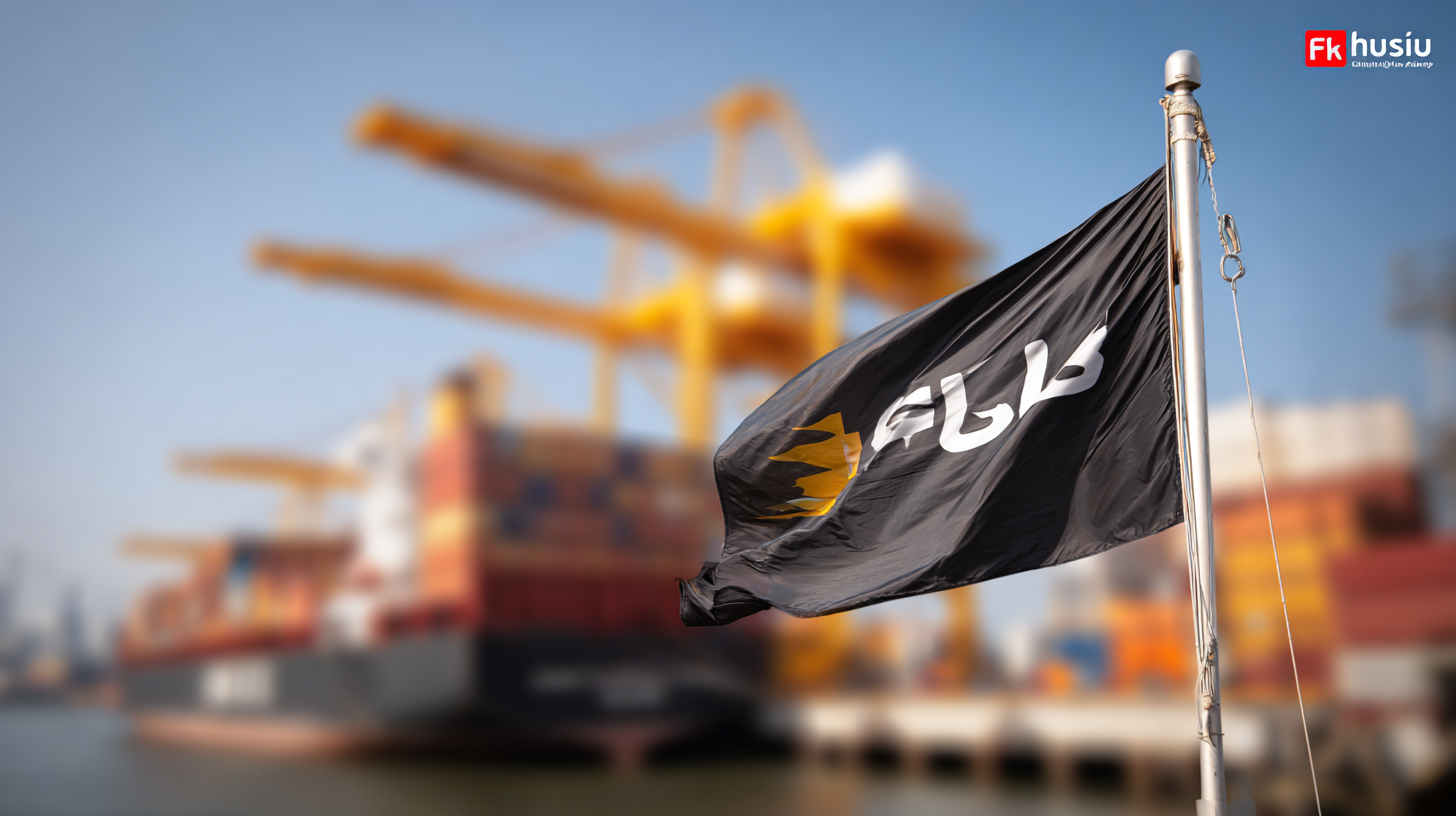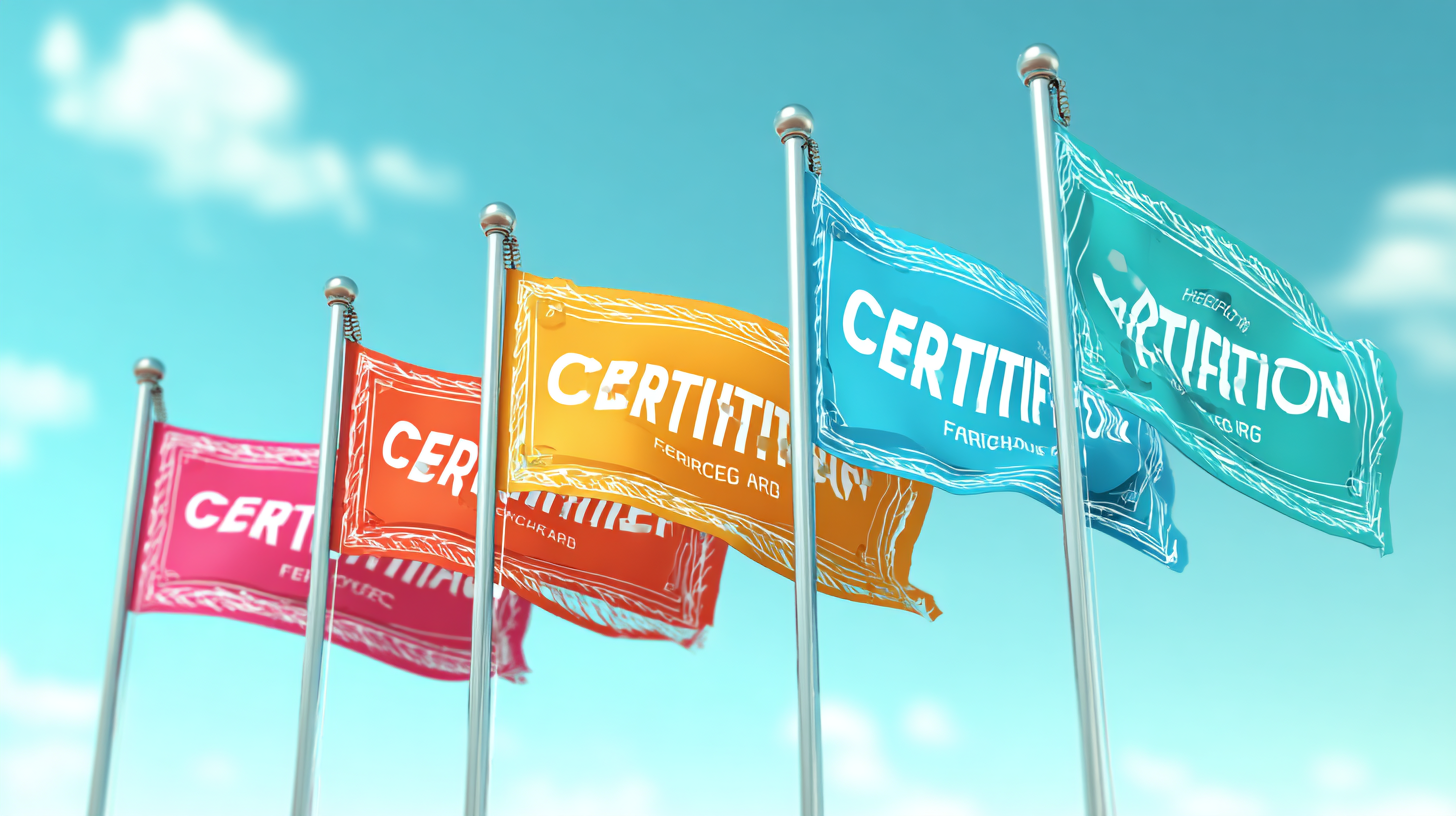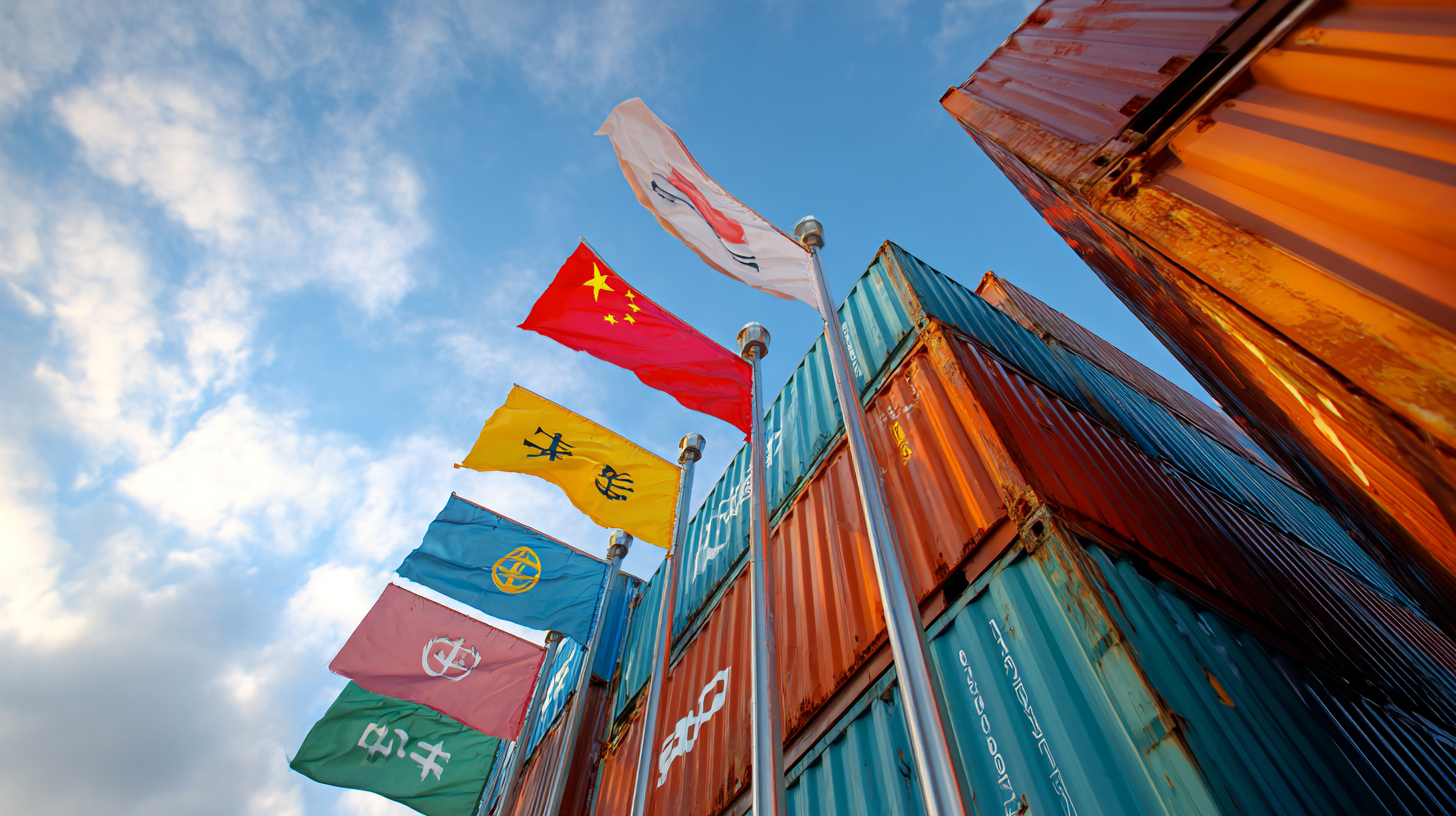Navigating Import Certifications: How to Choose the Best Feather Flag Pole for Global Trade
As global trade continues to expand, the use of promotional tools like Feather Flag Poles has gained significant traction among businesses looking to enhance their visibility. According to a recent report by the Global Trade Center, the demand for outdoor advertising solutions, including feather flags, is projected to grow by over 5% annually. This growth is driven by the increasing importance of branding and effective communication in highly competitive markets. However, navigating the complexities of import certifications for these products can be daunting. Understanding the detailed technical specifications of Feather Flag Poles is essential for ensuring compliance with international standards and optimizing performance. In this blog, we will explore how to choose the best Feather Flag Pole for global trade, considering essential factors such as material quality, durability, and relevant certifications to facilitate a seamless import process.

Understanding Import Certifications and Their Importance for Feather Flag Poles
When it comes to global trade, navigating the myriad of import certifications is crucial, especially for products like feather flag poles. Understanding these certifications not only ensures compliance with various regulations and standards but also safeguards your business against potential legal issues. Each country may have its own set of requirements, particularly regarding materials used, durability, and safety standards. Thus, manufacturers and importers must conduct thorough research to identify which certifications are necessary for their target markets.
Furthermore, the importance of import certifications extends beyond compliance. They can significantly influence customer trust and brand reputation. Shoppers are often more inclined to purchase products that meet recognized safety and quality standards. By ensuring your feather flag poles are certified, you position your brand as a reliable source, ultimately leading to increased sales and customer loyalty. In a competitive global market, emphasizing adherence to import certifications can be a key differentiator that sets your products apart from the rest.

Key Factors to Consider When Selecting Feather Flag Poles for Global Trade
When selecting feather flag poles for global trade, several key factors must be considered to ensure compliance and functionality. First and foremost, you should assess the certification requirements of your target market. Different countries have varying standards regarding safety, materials, and environmental impact. It’s crucial to choose a flag pole that complies with local regulations to avoid potential legal issues and ensure a smooth import process.

Another important aspect is the material and durability of the feather flag pole. Different markets may prioritize different features based on climate. For instance, poles intended for regions with high winds should be robust and made of weather-resistant materials, while those in calmer environments may afford more flexibility in design. Additionally, consider the ease of assembly and portability, especially if your products may be shipped internationally or frequently relocated. These factors will not only affect customer satisfaction but also influence inventory management and shipping costs in global trade.
Top Quality Standards and Regulations for Feather Flag Pole Manufacturing
When it comes to manufacturing feather flag poles for global trade, adherence to quality standards and regulations is paramount. Compliance with international norms not only ensures product safety and efficacy but also builds trust among consumers. For manufacturers looking to enter overseas markets, understanding the specific requirements—such as material certifications and safety guidelines—is crucial. This is especially relevant in regions with stringent import certifications, much like the recent regulatory shifts in the European Union regarding medical devices. Such changes emphasize the need for manufacturers to consistently evaluate and enhance their production processes to align with evolving standards.
Moreover, as seen in sectors such as liquefied natural gas, businesses often must navigate complex regulations while striving to meet international metrics. U.S. exporters are committed to maintaining environmental standards despite recent policy rollbacks, reflecting the growing importance of compliance in sustaining global competitiveness.
Feather flag pole manufacturers can take a cue from these industries, recognizing that investing in quality assurance and certification not only aligns with global standards but also positions them favorably in a highly competitive marketplace. By focusing on quality and compliance, manufacturers can ensure that their products stand out while meeting the demands of international customers.
Effective Strategies for Sourcing Feather Flag Poles from International Suppliers
When sourcing feather flag poles from international suppliers, it’s essential to implement effective strategies to ensure quality and compliance. According to a report by Market Research Future, the global promotional flags market is projected to grow significantly, reaching approximately $139 million by 2025. This growth indicates a rising demand for feather flag poles, making it imperative for importers to navigate supplier selection carefully.
One key strategy is conducting thorough background checks on potential suppliers. Utilizing platforms such as Alibaba and Global Sources can provide insights into supplier ratings and reviews. Additionally, it's advisable to verify certifications and compliance with international standards, such as ISO 9001, which assesses the quality management systems of suppliers. Research indicates that businesses that engage in meticulous supplier evaluation can reduce their risk of shipping defective products by up to 70%, thereby safeguarding their investment and reputation in the global market.
Another effective approach involves leveraging trade shows and industry expos to establish direct connections with suppliers, allowing buyers to physically inspect the products and negotiate terms. According to a survey by Trade Show News Network, over 75% of exhibitors believe that trade shows are one of the most effective ways to reach targeted audiences and develop supplier relationships. By utilizing these strategies, businesses can not only ensure they are sourcing high-quality feather flag poles but also achieve competitive pricing in the ever-expanding global trade landscape.
Navigating Import Certifications: Sourcing Feather Flag Poles from International Suppliers
This chart illustrates the average shipping costs (in USD) and lead times (in days) for sourcing feather flag poles from various countries. The data highlights the differences in both cost and time efficiency, crucial for effective global trade.
Common Mistakes to Avoid When Navigating Import Certifications for Feather Flag Poles
When navigating the complexities of import certifications for feather flag poles, many importers often overlook potential pitfalls that can cause delays or increase costs. A recent case involving flagpoles in Virginia underscores the importance of understanding local regulations and exemptions. For example, the ruling in favor of Carolyn Bowman highlighted that flagpole regulations can significantly vary from jurisdiction to jurisdiction. Importers should be aware of such nuances to avoid unnecessary compliance challenges.
One common mistake is failing to verify product specifications against import regulations. Before making a purchase, ensure that the feather flag poles you consider meet both domestic and international standards. This might include checking material safety data and confirming that the flag poles are constructed from allowable materials.
Additionally, misleading certifications can lead to severe repercussions. When selecting a supplier, always request legitimate documentation and independently verify their claims. Researching previous case studies, like that of the Prince Edward flagpole case, can offer valuable insights into what to expect and how to prepare adequately. By being proactive and informed, importers can streamline their processes and enhance their chances of compliance success.
